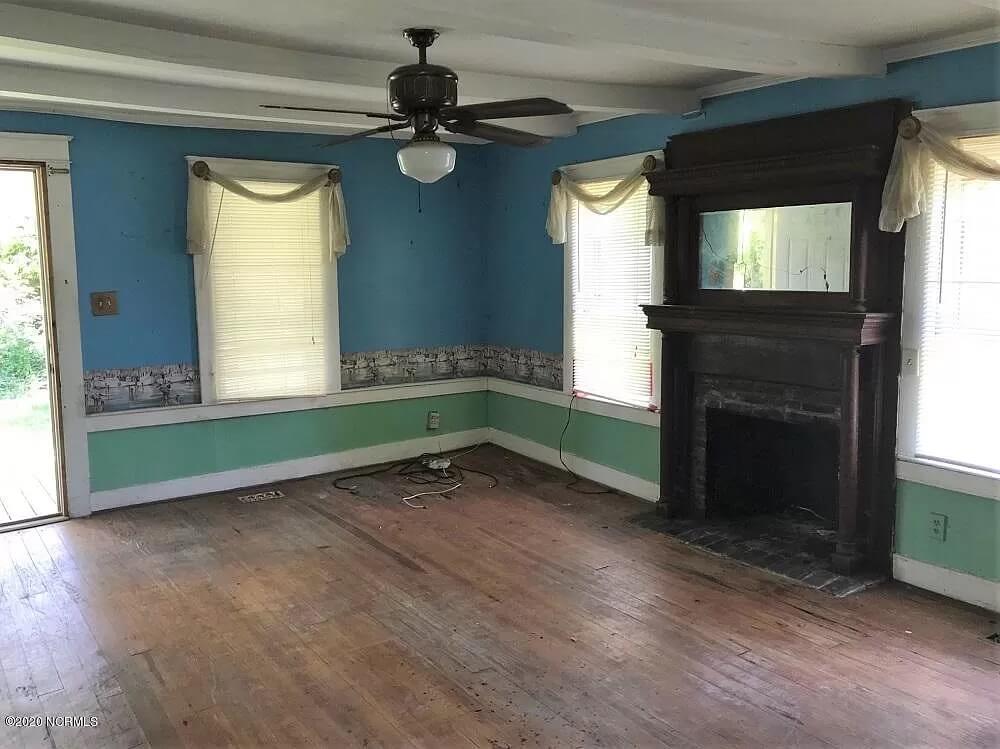Do Fans Cause House Fires [You'll Be Surprised]
Yes, fans can cause fires, especially in the summer, when people tend to use them more often. Fans blow air around the room, which can be enough to ignite a fire if it's hot enough. The National Fire Protection Association (NFPA) reports that accidental fan-related house fires are most common during the summer months – from June through September – when rooms are hotter and fans are in use more often. Additionally, the operation of the fan can exacerbate the condition, and for various reasons, even experts from Electrical Safety First recommend being cautious with the wires, plugs, and sounds of such devices, as these things could also pose a risk. Don't forget to always plug in and unplug fans with care.
Fans are useful in reducing the risk of home fires, but that doesn't mean you should use them all the time. If you have ceiling fans, check them periodically for rusting or loose connections and make sure to clean them regularly. Don't use fans in rooms where smoking is allowed because smoke can accumulate on the blades and cause a fire. Also, don't place anything flammable near your fan blades, such as blankets or bedding, because it could catch fire if it gets too close to the blades. The main thing is to be mindful of how and where you use fans.
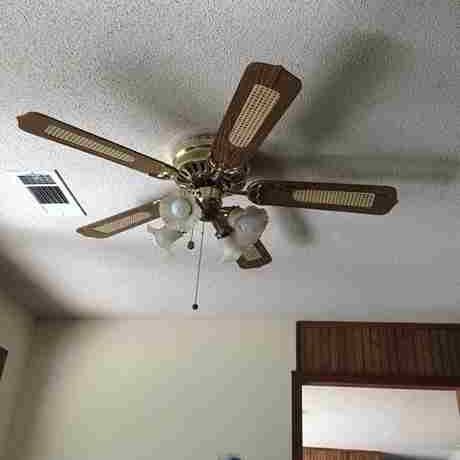
How Do Fans Catch Fire?
There are several ways fans can catch fire. Some of the most common causes include:
- Faulty wiring
- Loose connections/shorts in wiring or fan motor
- Improperly installed light kits on ceiling fans with exposed wiring
- Damaged blades with exposed wiring inside them (this is rare)
- Failure of the capacitor in a capacitor-start motor (this is rare)
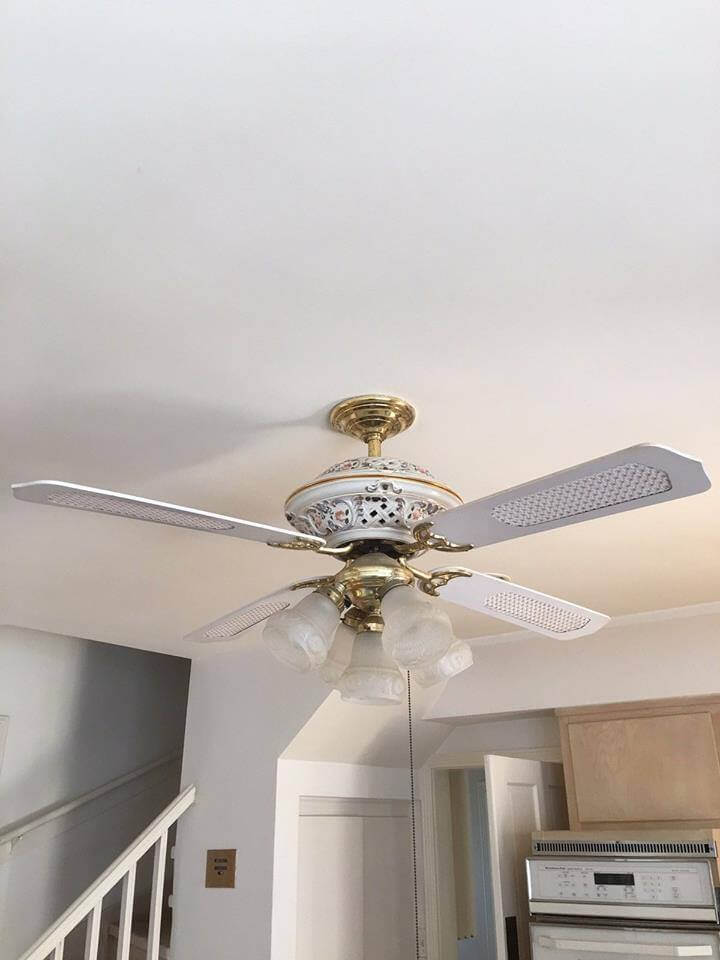
What Percentage Of House Fires Are Caused By Fans
Fans are an important tool for keeping cool in the summer. However, fans can also pose a fire risk if they are not used safely. According to the Alliance to Save Energy, more than 1,000 residential fires occur each year due to faulty electrical wiring involving various appliances, including fans.
Ceiling fans seem to be causing around 3-6% of household fires and are easy scapegoats for home fires on occasion. They are reported to cause anywhere from 3% to 6% of household fires, according to some sources. Ceiling fans may be exposed to more direct flames, which makes them susceptible to being charred.
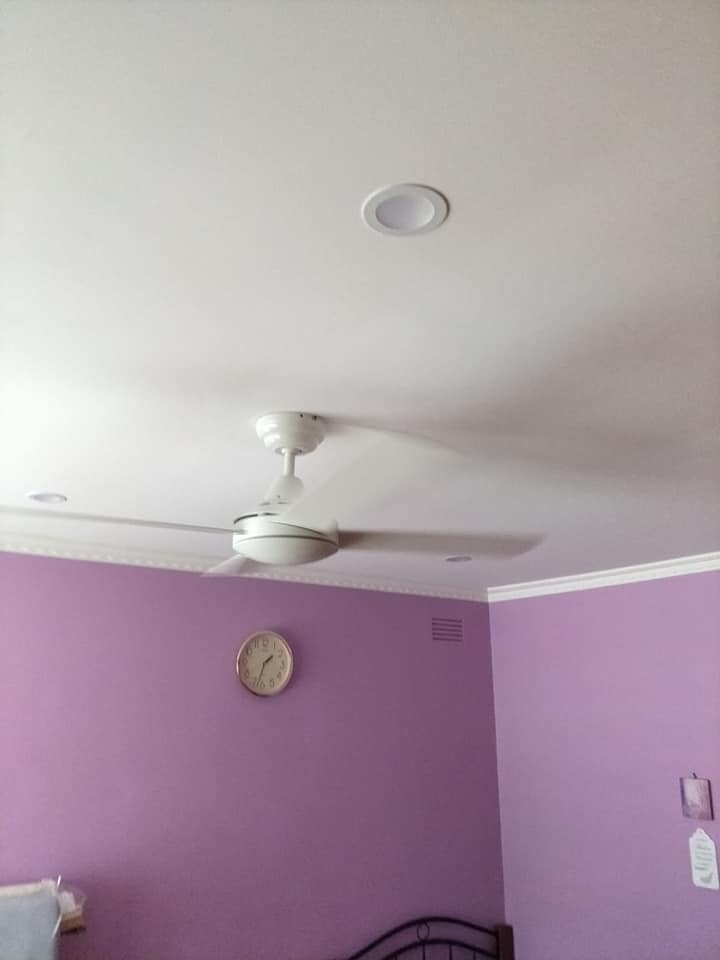
How Likely Is It For A Fan To Catch Fire?
Fans are a common way for people to cool off during the summer. And like other types of electrical appliances, fans can catch fire. But how likely is it for a fan to catch fire?
According to data from the U.S. Fire Administration, an average of 153 residential structure electrical fires per year are attributed to ceiling fans or portable electric fans — about 0.3 percent of all structure fires reported by U.S. fire departments. In addition, there are an average of 4 deaths, 18 injuries, and $4 million in property damage from these incidents each year.
Selling As An Option If a Fan Caused A House Fire
If you've experienced the unfortunate event of a house fire caused by a fan malfunction, selling your home may be a viable option to consider. Sell your home after a fire to not only move on from the distressing incident but also unlock the value in your fire-damaged property. At Fire Cash Buyers, we understand the emotional and financial toll of such a situation, and we are here to assist you throughout the entire process. Our team of experts specializes in handling fire-damaged properties, ensuring a seamless and efficient sale. By opting to sell smart, you can transform a challenging situation into an opportunity to start anew. Let us guide you through the journey of selling your fire-affected home and secure the best possible value for your property. Contact us today to discover how we can help you on the path to recovery and a brighter future.
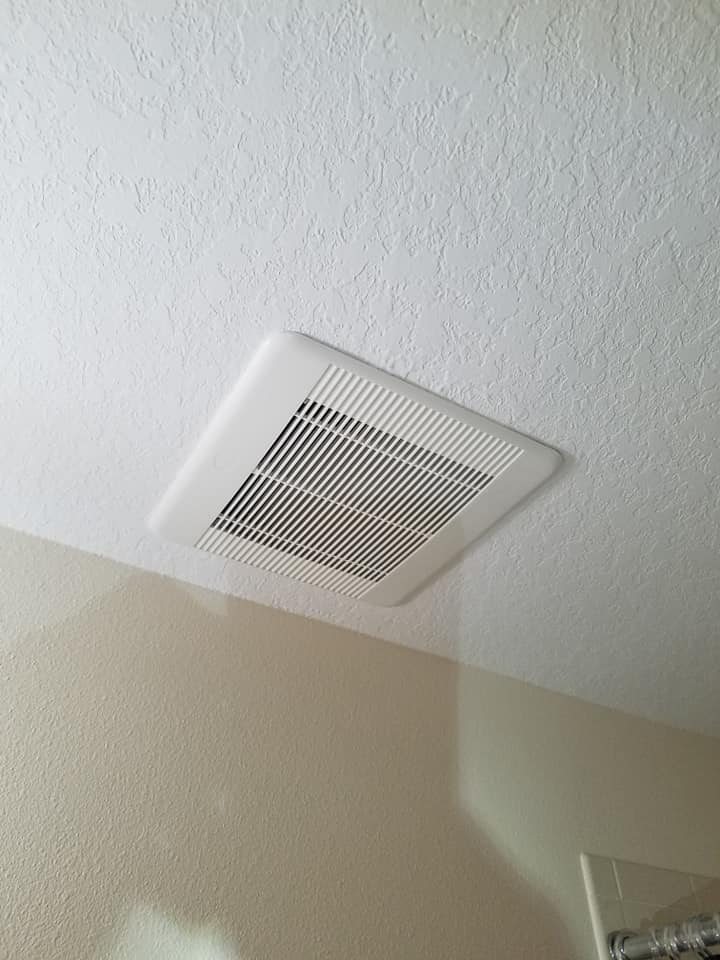
Can Leaving A Fan On All Night Cause A Fire?
We've all been told not to leave a candle burning unattended. But can leaving a fan on all night cause a fire? The answer is yes, but it's extremely rare.
According to the National Fire Protection Association (NFPA), there are around 100,000 home structure fires reported each year that are the result of electrical problems. Of those fires, only 1% are caused by fans or ceiling fans.
The most common cause of house fire is a fan with an overheated motor — especially in older models. The second most common cause is improper wiring and installation.
You may be wondering if it's safe to leave your ceiling fan on overnight, particularly considering the cost of electricity and whether it's necessary to run it for that long. The answer depends on your model: Fans with modern motors have built-in thermal cutoffs that prevent overheating, so they're safe to leave running all night long. This means you can enjoy a lot of comfort without worrying too much about safety. Remember to always pay attention to unusual sounds a fan may make, as it could indicate a problem with the motor or plug. Older models, which are not as technologically advanced as many current product options, should be turned off before bedtime or at least unplugged if you're stepping out for any length of time. If you have any questions about the safety of your specific model, consult the manufacturer or an expert.
What Risks Are Associated With Sleeping With An Electric Fan On?
The biggest risk of sleeping with an electric fan on is that it could actually create a potential fire hazard. One risk with any electrical appliance is that it can become unsafely hot, which is particularly dangerous when you're asleep as no input will cause a delayed reaction time and you'll be more vulnerable to inhalation injuries.
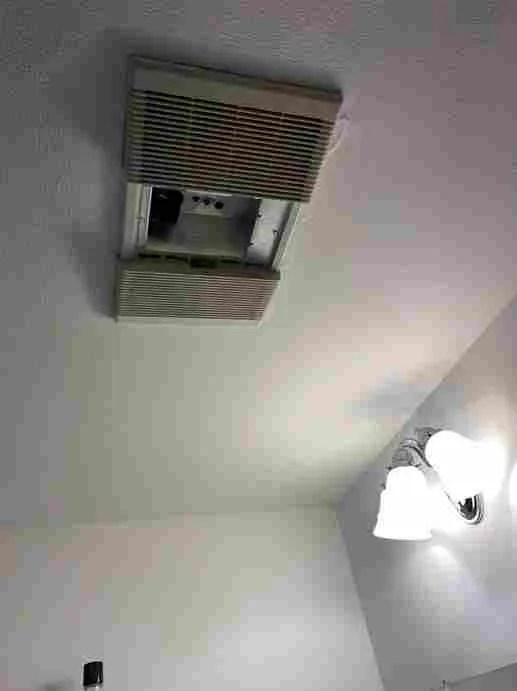
Is It Ok To Leave A Fan On Overnight?
In the summer, fans are a necessity, providing a cool breeze at high speed and circulating air throughout homes. They keep you cool while you sleep and prevent your house from feeling like a furnace. But how safe is it to leave a fan on overnight? Here are a few tips to keep in mind when using fans in your home.
The answer depends on whether you have an electric fan or one with a blade made from wood or plastic. It's also important to consider the manufacturer's safety guidelines and whether your device has any known issues or recalls.
Electric Fans
Electric fans are generally safe to leave on overnight, as long as they're unplugged and turned off before going to bed. Electrical fans that have rotating blades can pose a fire hazard if they're left unattended, so always make sure your fan is unplugged before going to bed or leaving the room where it's located. Additionally, ensure that the cables are in good condition and not damaged or frayed.
Non-electric Fans
While non-electric fans are safer than their electric counterparts, they're still not completely safe. Non-electric fans don't have an electrical cord and therefore can't electrocute you if they're left plugged in or turned on overnight. They also don't pose a fire hazard like electric ones do. However, if you have a wooden fan with a blade, it can catch fire if it's left on for too long. This can be a particular problem if there are plenty of flammable materials nearby or if there's a small leak in your gas line causing gas fumes to build up in your home.
Wooden/Plastic Blades
Stay safe and monitor your fans while they are in use. Be aware of any potential hazards they may present and take appropriate precautions to minimize the risk.
Ceiling fans can, in fact, cause fires. There are two main types of fan-related fires: short circuits and breakage. The most common causes of fires involving ceiling fans are inadequate wiring, tripped circuit breakers, and faulty switches. So, it's crucial to keep an eye on the maintenance of your fans to avoid any unfortunate incidents that could cost a lot in terms of damage and safety. It's important to have an electrician check your electrical system, from the floor wiring up to the ceiling, if you're installing a ceiling fan, as the number of electrical devices on a circuit can affect its capacity and potentially cause issues. By taking these precautions and being mindful of the risks, you can enjoy the comfort of your fans while ensuring that your home stays safe.
Can Ceiling Fans Cause Fires?
The answer is yes. Ceiling fans can cause fires. There are two main types of fan-related fires: short circuits and breakage.
Short Circuits
Ceiling fans have metal blades, which are electrically conductive. When the blades rub against each other or against the metal housing, they can cause a short circuit that sparks and ignites nearby combustibles. The flames can spread to other parts of the room, including curtains and bedding. If left unchecked, these fires can get out of control very quickly. Even such a short circuit can cause LED lights to catch on fire.
Breakage
A ceiling fan is designed to be turned on and off by an electric switch. If you try to operate your ceiling fan with the chain pull cord or pull chain knob, it may not work in the way it should and could cause a fire hazard because there's no mechanism to turn off the power when pulling on these extension cords.
Fans are a great way to stay cool in the summer but use them with caution.
WE CAN HELP WITH ANY SITUATION AND WE'RE READY TO GIVE YOU A FAIR CASH OFFER!
Enter Your Information Below it is Quick, Easy & Free!
Get Cash Offer
Common Causes Of Fires Involving Ceiling Fans
Ceiling fans don't often cause fires, but they do pose a risk if they aren't working properly. The most common causes of fires involving ceiling fans are:
Inadequate electrical wiring or installation errors
Inadequate wiring can lead to overheating of the fan motor and subsequent failure. If the wiring is overloaded or not properly installed, it may overheat and start a fire. It's important to have an electrician check your electrical system if you're installing a ceiling fan.
Overloaded circuits or inadequate amperage
If your circuit breaker trips when using the ceiling fan, it could mean the circuit is overloaded or that the wattage of the ceiling fan is too high for the circuit capacity.
Improperly wired switches
A faulty switch can cause overheating in a wall switch box, which could lead to a fire if it's not addressed quickly enough. If you notice smoke and a burning smell coming from your switch box while operating a ceiling fan, turn off all power to the box immediately and contact an electrician for repair assistance.
Failure to clean out dust and debris from the fan motor assembly
This is usually caused by a fan that has been left running for a long time without being turned off. The dust and debris build up on the motor, causing a short circuit and fire.

Happy Customers





